- Home
- Tim Lebbon
The Silence Page 6
The Silence Read online
Page 6
He drove on. Sirens blared on the opposite carriageway and police cars, an ambulance, and three fire engines powered down the fast lane.
Thirty miles later, he actually saw the result of the next accident in his rear-view mirror. A flash caught his attention, and when he looked he saw a blooming fireball rising a few hundred metres back, rolling in on itself, scorching the air and leaving a column of billowing black smoke behind.
“Jesus Christ!” he shouted. It held his attention for just too long, and when he glanced forward again he saw cars drifting across lanes. Holding the steering wheel so tightly that his knuckles cracked, he swerved around a campervan and drifted across the slow lane. His wheels struck the breakdown lane line, rattling and vibrating up through the car. Horns blared. Huw put his foot down and powered into the clear space ahead, and when he looked in his mirror again he saw several vehicles jockeying for position, settling eventually into a steady direction again. Way behind them the smoke continued to billow.
If he’d been behind that accident, he might never have been able to get home.
He considered calling the emergency services. Not my problem, he thought, shocking himself, because on any other day he would have made it his problem. But today was not any other day.
Huw felt a moment of pure anger at those careless drivers. He needed to reach his family! He had to get home, and how dare they—
But then he realised that someone might well be dead or dying on the road behind him.
“Fucking hell,” he muttered. People were so wrapped up with their phones; they were throwing caution to the wind. An air of desperation had settled over everything, and it was not just him, it was not only inside his car.
Everyone was doomsdaying today.
* * *
It took him two hours longer than normal to reach home. He was pleased at that, happy that he’d avoided any major hold-ups or accidents. Approaching the Severn Bridge, he’d passed a terrible crash on the opposite carriageway. A coach was involved, and several cars, and a petrol tanker, and people were rushing back and forth trying to help, driven back by the voracious flames. He’d tried not to look too closely. He’d told himself that the squirming shapes had only been flickers in the fire, nothing more.
Numbed, shattered, emotionally drained, and feeling as though during the drive he’d passed through some veil separating his reality from something not quite level and true, Huw pulled into his driveway and turned off the engine.
The front door opened and Kelly dashed out. He was glad it was still only three o’clock; they’d have an hour together at least before the kids arrived home from school. He could get up to date on the news, and they could talk about what to do. There would be the official word, of course—helplines for those worried about relatives and friends, government statements, soothing press releases designed to keep the population calm in the belief that everything was under control—but he and Kelly could put that to one side and consider the facts for themselves. Twitter and Facebook would be alight with events, and somewhere in that universe of comment and chaos would be kernels of truth.
But then his children appeared behind Kelly, standing in the open doorway. Jude looked edgy and excited. Ally looked afraid.
He opened the door and got out of the car.
“Oh, Huw,” Kelly said. There was such hopelessness in her voice that his heart lurched and his stomach sank.
“How bad is it?” he asked. Kelly did not reply, and Jude’s excitement gave way to a look the likes of which should never be seen on his young boy’s face. His family’s expressions gave the only answer he required.
* * *
He sat on the sofa on his own. Kelly and the kids were in the kitchen, and his mother-in-law was upstairs in her room. He heard the kettle boiling, a spoon dropped into a cup, and Kelly’s soft voice. Her words were interspersed with those quiet moments that were an integral part of his family’s mode of communication, as she signed to her daughter. Jude wasn’t interrupting like he sometimes did.
They were giving him time to stare.
I should have checked my phone, Huw thought. But he remembered the accidents he had seen on the way home, all of them likely caused by people doing just that. No, he’d made the right choice.
It had given him a few more hours of uncertainty, at least. He’d known that things were changing, but had held out hope that the next day would bring them all back to normality.
He could not believe that any more.
5
A woman stands alone on a hillside.
It seems to be a park, with ordered planting, trimmed lawns, a statue in the background.
In the distance behind her, a swirling cloud containing countless viespi is visible above the unnamed city. There are distant sounds: explosions, gunfire, car motors, sirens, screams.
The woman stares at the camera. She is terrified.
She seems to hear or see something, goes to scream.
She squeezes her eyes closed and presses her index finger against her lips. Shhhhh.
Vesps fly past her, just one at first, then several more.
Then a cloud.
They are a sickly yellow, their wings opaque and leathery, thin legs hanging like tendrils. As big as small cats. They have no eyes.
They have teeth.
One of them hits her, tumbles, then flies on.
She grimaces, squeezes her eyes shut even tighter.
She’s shaking. The vesps fly away.
The woman’s finger remains pressed so hard against her lips that they bleed. Shhhhhhh.
Clip from VidMe social website, Friday, 18 November 2016
I watched Dad seeing the truth.
I stood silently in the living-room doorway holding his mug of coffee. He didn’t know that I was there. My parents and friends often told me that I moved silently, sometimes almost ghost-like. Perhaps I moved so quietly because, in a way, I was always hoping to hear the faintest sound.
He sat on the edge of the sofa and leaned forward, elbows on knees, remote control in one hand, looking as if he were about to launch himself at the TV at any moment. His mouth hung slightly open. The little finger of his right hand twitched with his pulse, and I wondered how long he’d been driving to reach us.
I’d seen many of the clips and images before, but I watched again as Dad experienced them for the first time. There was professionally filmed footage from news reporters across Europe. Amateur film from mobile phones, much of it shaky, some of it grainy and flickering. Aerial shots from helicopters. Talking heads—experts from across the globe discussing what, why, where, how.
It all amounted to the same terrible, unbelievable, undeniable truth.
Bucharest burned. The ancient city now consisted of islands of buildings in swirling seas of fire. I’d seen this portion of film before, knew what was to come, could not look away. The terrible fascination of death, I thought. The aerial view tilted as the helicopter banked over the Dâmboviţa river, showing several boats floating freely and seemingly under no control. One of them had already struck the bank and stuck fast. Across its decks lay prone shapes, bodies piled on one another and splattered red. Things crawled across the bodies, feeding.
The vesps, I thought. That’s what they were calling them now. Viespi were wasps, and though they were nothing like wasps—I’d seen a few close up; the images had been horrible, and they would be on screen again soon in this terrible loop of destruction the news channel was showing between updates of newer tragedies—the name “vesps” seemed to have stuck. There was nothing else, no name better, because no one really knew what they were.
The film seemed to blur then, the image speckled with spots as if the lens was suddenly dotted with sand or dust. The helicopter juddered. Then the first shapes flew in crazy spirals directly at the cameraman. He must have been strapped into the open doorway, because the first vesp hit the camera lens and knocked it to one side.
A confused, uncertain view of a man’s panicked face, a wa
ving hand, the thudding rotors seemingly staggered by the film’s frame speed, and then more vesps streaking across the sky, wings flapping frantically as they converged on the aircraft.
The picture broke and returned several times as the camera plummeted towards the ground.
I watched Dad put his hands to his face and pull his cheeks down, as if to hold his eyes open in light of the terror.
The newscasters returned and spoke silently, then the next clip came on again. I’d seen this one, too, and I groaned. Dad turned and saw me, and I took him his coffee. He took it gratefully and held my hand, drawing me down to sit beside him. He hugged me tight. I enjoyed his smell, his warmth, his closeness. He felt safe, because that’s what dads are for.
He turned on the subtitles, but I shook my head and he turned them off. It was bad enough just seeing it.
The caption said it was the view inside a shopping mall in Belgrade. Maybe it was a security camera or a webcam; either way it was a fixed, motionless view across a wide walkway and series of staircases and escalators in front of two large department stores. It didn’t seem particularly busy; the shoppers seemed calm and unworried. A mother sat on a bench nursing a baby, a toddler sat beside her eating ice cream. A man stood close by playing a guitar, the instrument’s case open before him and gleaming with change. Shoppers passed back and forth carrying bags, looking at mobile phones, talking, laughing.
Something happened off-screen that caught everyone’s attention. Heads snapped around as if on strings. A couple of shoppers started to back away. One fat man turned to run and stumbled, slipping down a staircase on his behind. No one went to help, because no one really saw him.
The first vesp winged into view and slammed into the guitar man’s chest, knocking him back against glass balustrade. He slapped at it with a strange grin on his face, almost embarrassment. Then his mouth opened in a scream as the thing clawed, thrashed, chewed, and blood spotted the white floor at his feet.
More vesps seemed to zero in on the man’s cries, and soon he was smothered in the creatures. They were pale yellow and moist-looking, their leathery wings flapping faster than most birds’. I’d never seen anything like them, and it seemed no one else had either.
The mother hugged her baby in close, wrapping her jacket around the child and reaching for her toddler. The young child shouted. A vesp flitted in at the left of the image, skimmed the floor, and powered up into the underside of the boy’s jaw.
I closed my eyes, but I had seen this before, and remembered.
I kept my eyes closed, feeling my dad’s reaction to the horror. He tensed, stopped breathing, and his arm held me even tighter. He’ll be seeing the clouds of those things now, I thought. The feeding. The blood pooled on the white floors, the man tipping back over the balustrade and disappearing with those things flying after him. The windows breaking.
When I judged it was safe I opened my eyes again, and the newscasters were back. They looked harried and tired, and in the newsroom beyond the glass walling behind them people dashed back and forth, computer screens flickered, and phones were picked up and thrown back down. The man’s tie was loose, and a film of sweat shone on his top lip. I was fascinated by that. Newsreaders had never seemed so human before.
There was more. Scraps of footage from Hungary, Romania, Bulgaria, all showing attacks or, in fewer cases, the results of attacks. People were on the move, fleeing westward. One scene showed a road full of refugees that must have been caught by a wave of vesps, and this time only select stills were aired. When that film had first emerged a couple of hours ago they had broadcast it all, and I would never forget the things I’d seen. So many bodies so badly mutilated, open to the world, steaming and glistening red, and all of them seemed merged with the vehicles and their belongings, forming one large, long dead thing that had once moved along the road.
A man in Croatia was transmitting from his apartment high in a tower block in Zagreb. It was a webcam feed, grainy and uneven, and he kept picking up his laptop to show the scenes beyond his window. There was a small balcony with a single seat, a dead potted plant and several empty beer bottles, but he did not open the doors. Instead he would hold the laptop against the glass, integral webcam aimed through the glass to what lay beyond. Zagreb also had its fires, and though nowhere near as bad as Bucharest, still they gave the city the look of a war zone.
Vesps flitted past his window. Sometimes they seemed to veer off at a tight tangent and disappear from view. Other times they flew in rough lines, like migrating birds following a leader. In the distance, close to a wide park where a lake glimmered in the afternoon sun, a great flock of the creatures twisted and turned in patterns that should not have been beautiful, but were. It was almost hypnotic.
The view tilted and became chaotic, and then the man appeared again. He was holding up a card with hastily scrawled words. He slipped the card away and showed another, then another, and then the first card again. He went through the process several more times. His eyes were wide, his face drawn and so grey that I wondered whether he’d plastered himself in ash. Then he tilted the laptop’s lid to show the view deeper in the room behind him.
A woman and two children sat on a sofa. They had thick packing tape across their mouths, but their hands were free—they were silent of their own free will. The woman nodded at the camera.
When the view switched back to the newscasters, I picked up the remote control and switched on subtitles. I had not seen the Croatian man’s footage before.
“…we’ll get a more accurate translation later for you, but it seems that the man’s written message reads…” The newscaster checked her laptop, frowned, then continued. “Noise brings them. Stay quiet. Stay alive.”
I felt the rumble of Dad saying something, and then Mum, Lynne and Jude came into the room. But I kept watching the screen as they spoke, thinking about those words.
Noise brings them.
The vesps had come from beneath the ground. How there were so many, how they’d spread so far so quickly, these were things I couldn’t know and it hurt my head just thinking about them. But it made sense that if they’d lived for so long in utter darkness, they were blind and hunted by sound.
Stay quiet. Stay alive.
Something else was happening on screen. The “Breaking News” logo remained, and the two newscasters had been handed cups of coffee. The woman was saying something and the subtitles were rushing to keep up, misspelled and missing words. But the gist was there.
“…news coming in of incidents in Slovenia and northern Italy.”
I turned to look at my family. Lynne was shaking her head, saying, “Oh dear, oh dear.” Mum hugged Jude. He was a bright kid, and his earlier excitement at these unusual events had given way to terror. He’d been crying.
My mother made sure I was looking, and then she spoke.
“We should talk about what to do.”
* * *
We sat at the small table in the kitchen. There was no TV in the room, and Dad and Mum had left their phones face down on the worktop. Jude had opened some crisps and dropped them on the table, but instead of picking them up he was moving them around with his fingertip. Neither of our parents told him off.
Lynne had made a fresh pot of coffee, and hot chocolate for me and Jude. Watching the kettle boil gave us pause to gather our thoughts.
I said nothing. I was afraid to speak, because whatever was said next would move events onwards. And I was becoming so, so terrified that onwards might mean away from home.
Home was the only place where I felt totally safe. People sometimes said that they admired me for how I’d adapted and how I was determined to do things that were made more difficult by my condition. But sometimes I was also scared. The world often seemed bigger and wider now that I could no longer hear it, as if it could creep up behind me. Heavier and more malevolent. So after I’d spent time being strong and determined, there was always home to go back to.
“We can’t leave,” I said at last
.
“I don’t want to go anywhere!” Jude said. I only just picked it up on his lips.
“No one’s leaving,” Lynne said, signing as she spoke. In a family conversation like this it came naturally for them to sign for me. And I’d become used to anticipating who would talk next, analysing the dynamics of conversation and understanding it to a greater degree than anyone with functional hearing. Jude sometimes called me a witch. I called him a little shit. Equal scores, I reckoned.
“Let’s talk about it sensibly,” Mum said.
“There’s nothing sensible about this,” Dad replied.
Lynne tapped the table with her knuckles until we fell silent and looked at her. “We can’t panic and overreact,” she said. “But we can’t ignore what’s going on and not react at all. We have to do what Kelly says, Huw. Talk about it sensibly.”
Huw shrugged, hands held out to both sides. So? he seemed to be saying. Who’s going to begin?
“Won’t the Queen tell us what to do?” Jude asked. “…in her bunker,” I caught Dad muttering.
“Jude’s right,” Lynne said. “We’ve been watching the news, that’s all, and we know how sensationalist journalists can be. Twenty-four-hour news, I’ve always hated it. They can make a crisis out of a drama just to fill the day.”
“You’re saying this isn’t a crisis, Lynne?” Dad asked.
“Not at all. I’m just saying we should wait. Hear what the authorities have to say.”
“I’m amazed the Prime Minister hasn’t been on already,” Mum said, and I think Dad said something about a bunker again.
Jude flicked a crisp across the tabletop at me, then grinned. I couldn’t help smiling back. However scared, he was a kid, and his attention was wandering.
“We should check other channels,” I said, and Lynne smiled at me. I’d always thought of her as the strong one in our house. Since losing her husband when I was just a toddler, Lynne had lived a fiercely independent life, staying in their cottage in the Brecon Beacons, driving a 4×4 so that she could get about in the harsh winters, holidaying overseas alone. She had not once let my grandfather’s death stand in the way of her dreams. Now almost seventy-five, since he’d been gone she had visited Egypt, Mexico, Morocco, and Canada.

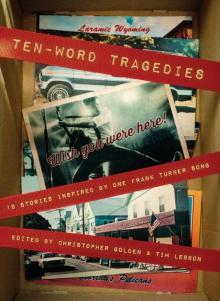 Ten-Word Tragedies
Ten-Word Tragedies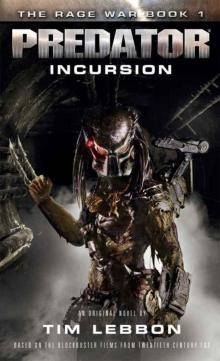 Predator: Incursion
Predator: Incursion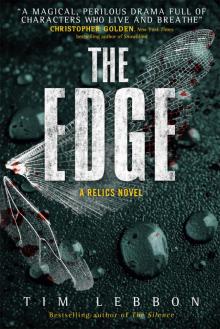 Relics--The Edge
Relics--The Edge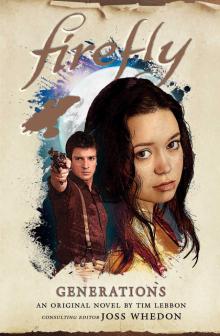 Firefly
Firefly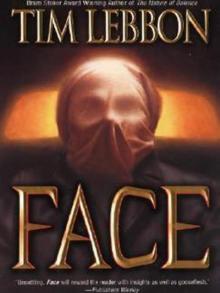 Face
Face Generations
Generations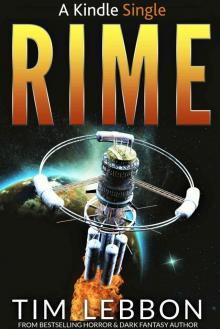 RIME (Kindle Single)
RIME (Kindle Single) Fallen
Fallen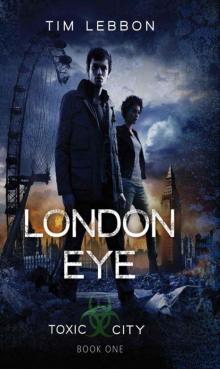 London Eye tc-1
London Eye tc-1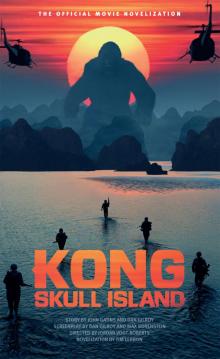 Kong: Skull Island
Kong: Skull Island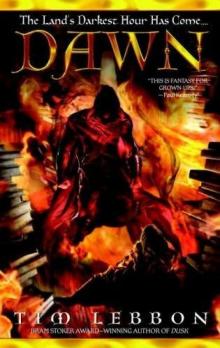 Dawn n-2
Dawn n-2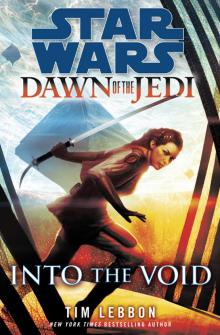 Into the Void: Star Wars (Dawn of the Jedi)
Into the Void: Star Wars (Dawn of the Jedi)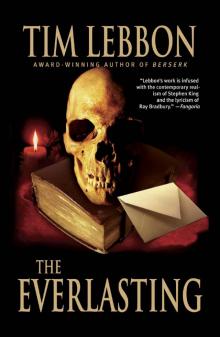 The Everlasting
The Everlasting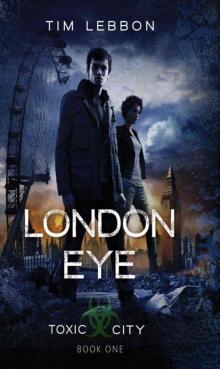 London Eye: 1 (Toxic City)
London Eye: 1 (Toxic City)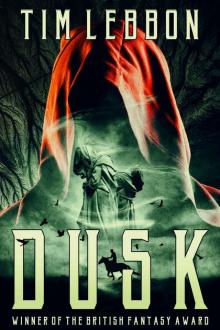 Dusk: a dark fantasy novel (A Noreela novel)
Dusk: a dark fantasy novel (A Noreela novel)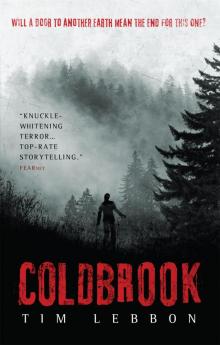 Coldbrook
Coldbrook Alien
Alien Dusk
Dusk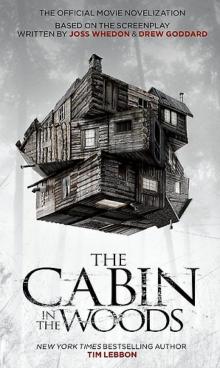 The Cabin in the Woods
The Cabin in the Woods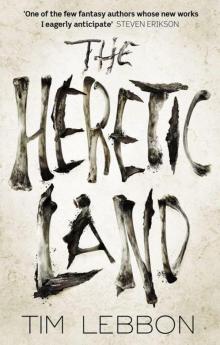 The Heretic Land
The Heretic Land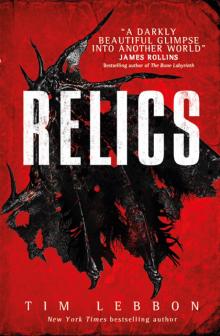 Relics
Relics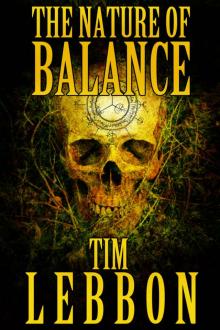 The Nature of Balance
The Nature of Balance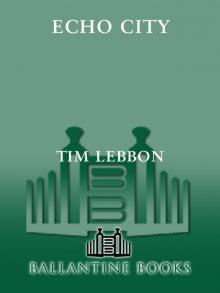 Echo City
Echo City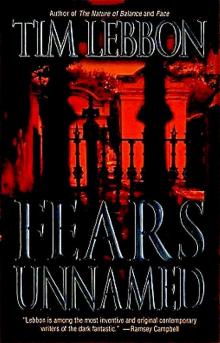 Tim Lebbon - Fears Unnamed
Tim Lebbon - Fears Unnamed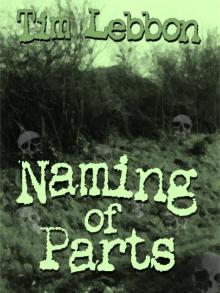 Naming of Parts
Naming of Parts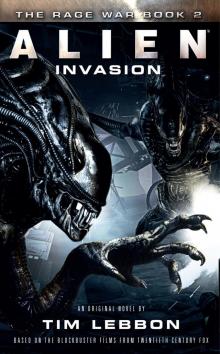 Alien--Invasion
Alien--Invasion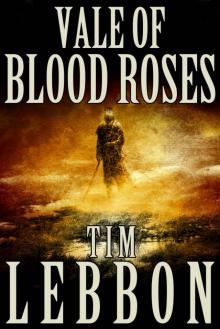 Vale of Blood Roses
Vale of Blood Roses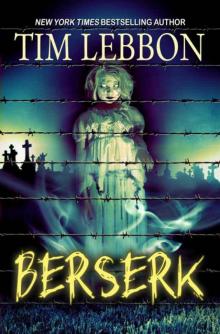 Berserk
Berserk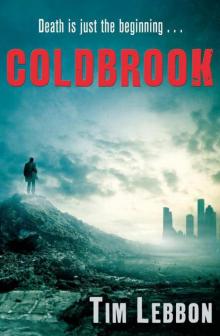 Coldbrook (Hammer)
Coldbrook (Hammer)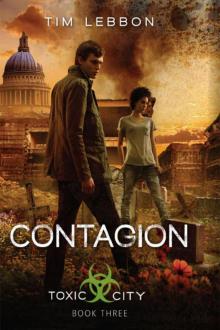 Contagion tc-3
Contagion tc-3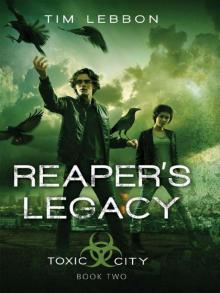 Reaper's Legacy: Book Two (Toxic City)
Reaper's Legacy: Book Two (Toxic City)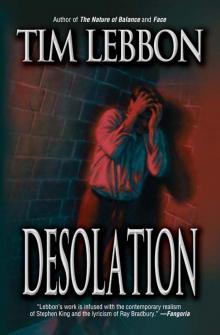 Desolation
Desolation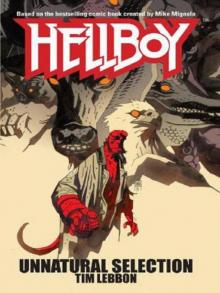 Unnatural Selection
Unnatural Selection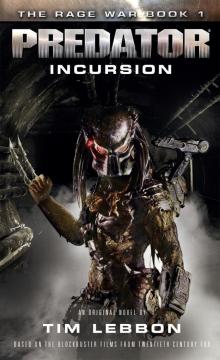 Predator - Incursion
Predator - Incursion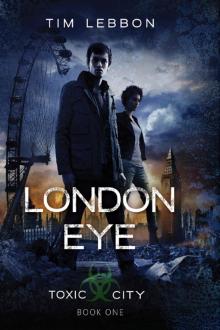 London Eye
London Eye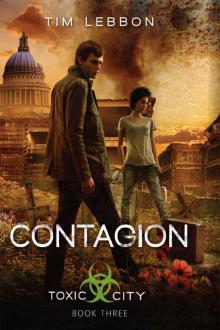 Contagion (Toxic City Book Three)
Contagion (Toxic City Book Three) The Silence
The Silence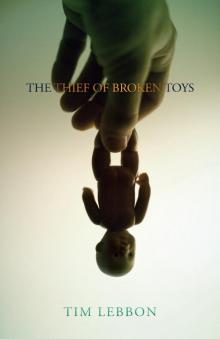 The Thief of Broken Toys
The Thief of Broken Toys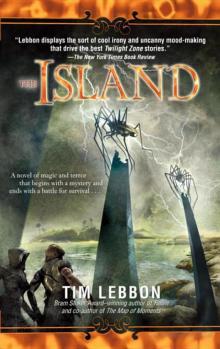 Tales of Noreela 04: The Island
Tales of Noreela 04: The Island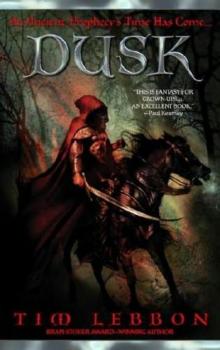 Dusk n-1
Dusk n-1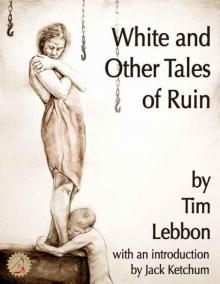 White and Other Tales of Ruin
White and Other Tales of Ruin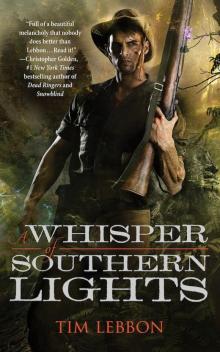 A Whisper of Southern Lights
A Whisper of Southern Lights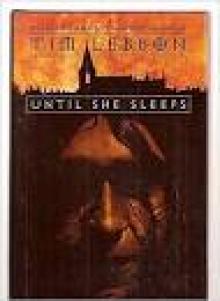 Until She Sleeps
Until She Sleeps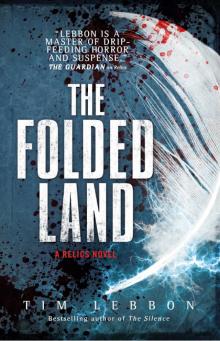 Relics--The Folded Land
Relics--The Folded Land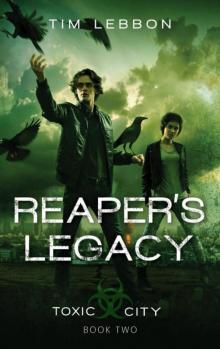 Reaper's Legacy tc-2
Reaper's Legacy tc-2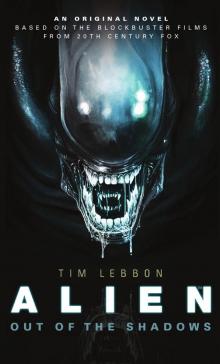 Alien: Out of the Shadows
Alien: Out of the Shadows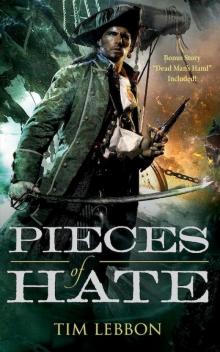 Pieces of Hate
Pieces of Hate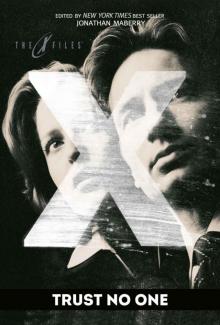 X-Files: Trust No One
X-Files: Trust No One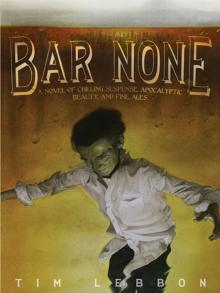 Bar None
Bar None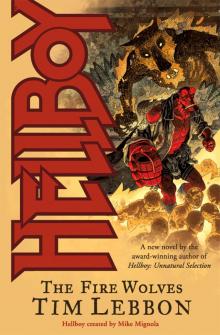 The Fire Wolves
The Fire Wolves